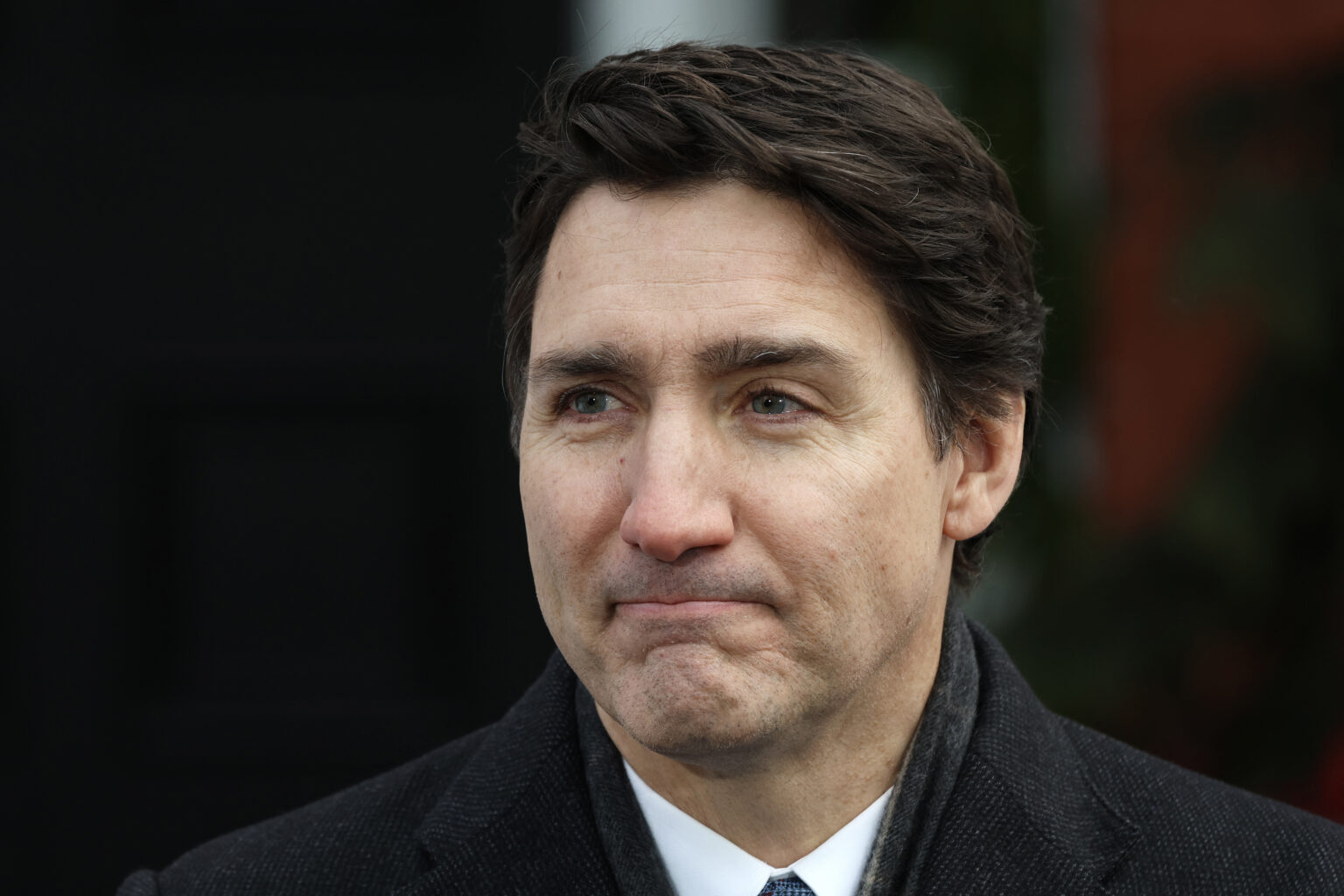Prime Minister Justin Trudeau warned Canadians that they should expect “difficult times” as they brace for President Donald Trump’s heavy tariffs, which will go into effect on Saturday.
Newsweek reached out to the White House, the U.S. State Department and Trudeau’s office for comment via email on Friday.
Why It Matters
Trump has promised to hit Canada and Mexico with 25 percent tariffs in order to force them to crack down on illegal immigration and fentanyl flowing into the United States.
Canada, the third largest exporter of goods to the U.S., provides the lion’s share of American oil imports. In 2023, Canada accounted for 52 percent of the U.S.’s petroleum imports and almost all of its natural gas imports, the U.S. Energy Information Administration reported.
Trump’s allies have argued that he only uses tariffs as a threat against other countries to force them into negotiations, but the administration briefly launched a series of punitive measures against Colombia on January 26 when its government rejected a flight with repatriated Colombians as part of the U.S. mass deportation operation.

Dave Chan/AFP via Getty Images
What To Know
Trump announced he would implement the tariffs on February 1. On Thursday, he told reporters that “Oil is going to have nothing to do with it,” later adding that oil “may or may not” be covered by the tariffs.
On Friday, Reuters reported that three people familiar with Trump’s plans had revealed he would instead look to implement tariffs against Mexico and Canada on March 1. However, White House press secretary Karoline Leavitt dismissed that report, insisting that a Saturday start for 25 percent tariffs remained in place.
Leavitt said she had no information regarding possible exemptions but that all details would be clear “in 24 hours” when the tariffs go into effect.
Regardless of that timeline, Canada is preparing for the effects of those tariffs, with Trudeau telling an advisory council on Canada-U.S. relations that the country faced a critical moment. He assured Canada would have a “forceful but reasonable” response once the tariffs took effect but did not elaborate on what that might entail.
As Canada sends around 75 percent of all goods and services exports to the U.S., the economy could take a significant hit from the proposed tariffs.
What People Are Saying
Canadian Prime Minister Justin Trudeau told reporters: “We’re ready with a response—a purposeful, forceful but reasonable, immediate response. It’s not what we want, but if he moves forward, we will also act. I won’t sugarcoat it. Our nation could be facing difficult times in the coming days and weeks. I know Canadians might be anxious and worried, but I want them to know the federal government, and indeed, all orders of government, have their backs.”
White House press secretary Karoline Leavitt, at a press briefing on Friday: “I was just with the president in the Oval Office, and I can confirm that tomorrow, the February 1st deadline that President Trump put into place in a statement several weeks ago continues.
“The president will be implementing tomorrow a 25 percent tariff on Mexico, 25 percent tariff on Canada, and a 10 percent tariff on China for the illegal fentanyl that they have sourced and allowed to distribute into our country, which has killed tens of millions of Americans. These are promises made and promises kept by the president.”
What Happens Next
At this point, Trump’s tariffs should take effect on Saturday, which will start to drive up the prices of any goods coming from Canada.
This article was originally published by a www.newsweek.com . Read the Original article here. .

